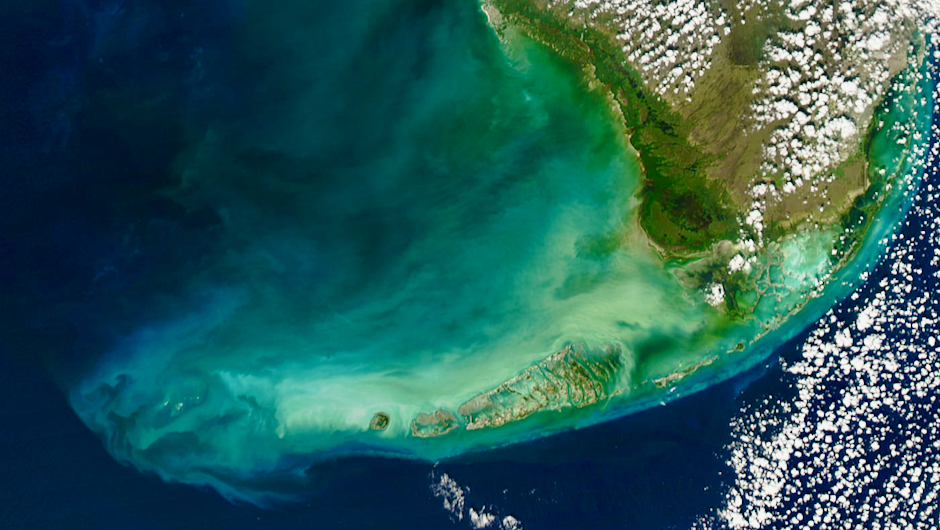According to new research, 70% of Florida's reefs are degrading and witnessing a net loss of reef habitat. The study, performed by an interdisciplinary group of researchers at the University of Miami Rosenstiel School of Marine, Earth, and Atmospheric Science as part of the NOAA Cooperative Institute for Marine and Atmospheric Studies, offers new information on the state of Florida's world-famous coral reefs.

The Florida Reef Tract is the only living coral barrier reef in the continental United States and the third largest coral barrier reef system in the world. Image Credit NASA
This research helps us to better understand which reefs along Florida’s reef tract are vulnerable to habitat loss and require management and restoration efforts to prevent further habitat loss. On the contrary, we also identified reefs that may be potential hold-outs to reef development and are more likely to persist in the future.
John Morris, Study Lead Author and Researcher, Atlantic Oceanographic and Meteorological Laboratory, NOAA
The researchers used information from 723 reef sites in three biogeographic zones across the state’s reef tract to assess each site’s carbonate budget. Benthic ecology is the assemblage of all living organisms dwelling on the sea floor. From the Dry Tortugas to the St. Lucie Inlet, the reef tract stretches over 350 miles. A positive carbonate budget shows that a reef is expanding over time, whereas a negative carbonate budget indicates that the reef is contracting.
Carbonate production and carbonate erosion in South Florida were calculated using data from NOAA’s National Coral Reef Monitoring Program and National Geodetic Surveys. The amount of coral cover and parrotfish biomass are the key determinants of carbonate budgets along the Florida reef tract. They discovered that 506 of the locations lost reef habitat on an annual basis.
These findings underscore the need for enhanced management strategies like outplanting corals to help restore coral structure that has been lost. Moving forward, we can use this as a baseline to implement and track the success of management strategies.
Erica Towle, Study Co-Author and Coordinator, National Coral Reef Monitoring Program, NOAA
Erica Towle is an alumna of the UM Rosenstiel School.
The Florida Reef Tract is the world’s third-biggest coral barrier reef system and the only extant coral barrier reef in the continental United States.
Bleaching events, ship groundings, and diseases, like the stony coral tissue loss disease found in 2014, have been the most significant drivers of coral loss in Florida during the last decade.
The coral reefs in Florida are responsible for 70,000 jobs and $8.5 billion in annual sales, according to NOAA. In addition, healthy reefs defend coastlines from flooding and storm surges.
Unless management strategies are implemented, Florida’s eroding reefs will likely reduce the extent to which coral reefs can sustain these important economic and ecosystem services.
John Morris, Study Lead Author and Researcher, Atlantic Oceanographic and Meteorological Laboratory, NOAA
The study was supported by the NOAA Coral Reef Conservation Program Project #743.
Journal Reference
Morris, J. T., et al. (2022) Low net carbonate accretion characterizes Florida’s coral reef. Scientific Reports. doi.org/10.1038/s41598-022-23394-4.